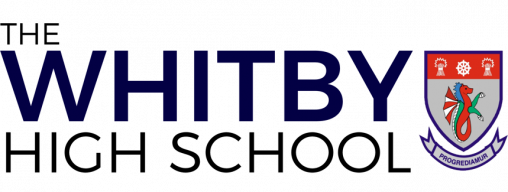
- Home
- /
- Supportive Education
- /
- SEND
SEND
Special Educational Needs & Disabilities - Information Report - 2023/24
The following information details how The Whitby High School supports students with Special Educational Needs and Disabilities (SEND).
The Learning Support Department
The Learning Support department is responsible for identifying and providing support and intervention for students
with SEND. The department is led by the Special Educational Needs Coordinator (SENDCo) who is responsible for the management of SEND provision and the strategic development of a whole school inclusive approach to meeting SEND. The
SENDCo is supported in this role by an Assistant SENDCo (part-time).
The department also benefits from two Learning Support Managers, a Teaching Assistant Deployment Lead and a SEND
administrator.
The department currently has 20 teaching assistants who provide in-lesson support and deliver a number of interventions to students.
Categories of SEND
School currently provides for a range of needs, including:
- Communication and interaction
- Cognition and learning
- Social, Emotional and Mental Health needs
- Sensory and/or physical needs
Identifying and supporting SEND
Transition
The Learning Support department assesses each student’s skills and levels of attainment on entry using information from previous settings and key stages. There is a systematic and extensive transition programme, which involves the department and pastoral leaders working closely with primary schools and parents several months in advance of entry, culminating in transition day visits in July each year. Extra transition visits can be arranged for students.
High Quality Teaching – Wave 1 support
Teachers are responsible and accountable for the progress and development of all the students in their classes. High quality inclusive teaching is therefore the first step (Wave 1) in responding to students who are not making expected levels of progress for their age and individual circumstances. The SENDCo and Assistant SENDCo provide support and guidance for staff in meeting this responsibility.
The importance of regular attendance to lessons so that students can access high quality inclusive teaching is essential if they are to make progress across the curriculum.
Wave 2 support
If a student is not meeting expected levels of attainment or progress following Wave 1 support from teachers, then a referral to the Learning Support department is made. This starts a response known as the Graduated Approach, which is coordinated by the SENDCo and involves parents, teachers and pastoral leaders completing an assess, plan, do and review cycle aimed at identifying specific learning needs and removing barriers to learning.
Students may require access to specific intervention at this point or be placed on a referral pathway which aims to identify specific conditions like Attention Deficit Hyperactivity Disorder (ADHD) or Autistic Spectrum Condition (ASC) via the Multi Agency Map (see below).
Learning Support provides the following Wave 2 interventions:
- Emotional Literacy Support – delivered by Emotional Literacy Support Assistants (ELSAs)
- Lexia literacy intervention for identified year 7 and 8 students
- Paired Reading – delivered by trained teaching assistants
- Tailored Speech and Language programmes – delivered by ELKLAN trained teaching assistants
- Social communication intervention (Wellbeing toolkit) – delivered by trained teaching assistants
Wave 2 interventions aim to enable students to overcome their barriers to learning, develop independence and resilience as learners and subsequently engage more successfully in lessons. Interventions are subject to regular monitoring and evaluation and some may involve removal from specific lessons, usually for a maximum of half a term.
Wave 3 support
If a student’s progress following Wave 2 support and intervention continues to be less than expected, further graduated approach cycles are conducted. This may involve school procuring support and advice from an outside agency (Wave 3). A list of the agencies that school works with include:
- Cheshire West and Chester SEND team
- Speech and Language Service
- Cheshire West and Chester Autism Service
- Educational Psychologist Service
- Community Paediatrics and School Health
- Child and Adolescent Mental Health Service (CAMHS)
- Hearing Impaired and Visually Impaired services
- Occupational Therapy Services
- Young People’s Services
Multi-Agency Map
Students who consistently exhibit social communication or attention needs which are consistent with conditions like Autistic Spectrum Condition (ASC) or Attention Deficit Hyperactivity Disorder (ADHD), will be referred to Community Paediatrics services for a possible diagnosis using the Cheshire West and Chester Multi-Agency Map.
If a student is still not making expected progress following numerous graduated approach cycles and outside agency involvement, school will consider securing additional support by applying for top-up funding or an Educational Health Care Plan (EHCP) from the Local Authority. This may lead to a student receiving personalised support for their SEND across the curriculum from a teaching assistant.
The Quiet Room
School has a permanently staffed social communications resource base, known as the Quiet Room. This base supports students who have social communication needs such as Autistic Spectrum Condition and has been designed specifically to help regulate their anxiety and stress.
Small class resource provision
Some students who join us in year 7 are often not secondary ready and have needs which make the transition to high school difficult for them. To enable a successful transition into our high school environment, these students are placed in a small class that provides a tailored timetable and higher levels of adult support. Once they have adjusted to high school life, they progress from this class and join their peers on the wider school curriculum timetable.
Our small class provision has also been extended into other year groups, given that we recognise some students have needs which mean they are not able to regularly access learning in larger classes. These classes benefit from increased levels of adult support to help students reduce anxiety and engage with learning.
Evaluating the effectiveness of SEND provision
The SENDCo regularly reports to the governing body on improving outcomes of students with SEND and the department is part of the whole school self-review processes.
School evaluates the effectiveness of provision for students with SEND by:
- Reviewing students’ individual progress each term
- Reviewing the impact of interventions
- Conducting Annual Reviews for students with an Educational Health Care Plan and Top Up funding.
Inclusive Ethos
School will endeavour to make any reasonable adjustments to enable students to attend all lessons and take part in any school activity regardless of their SEND, as directed by the Equality Act (2010), unless there is a recognised safeguarding risk. Therefore, we encourage all students to attend:
- extra-curricular activities and school trips
- before-and after-school clubs
- sports day, school performances and special workshops
SEND Policy
The SEND Policy details how school will support and make provision for students with SEND and can be found on the school website welcome page by clicking on the ‘About Us’ tab, followed by ‘School Policies’.
Contact Information
For enquiries and information related to SEND, please contact the Learning Support department by email on LearningSupport@whitbyhs.cheshire.sch.uk or by phone on 0151 355 8445, extension 343, 344 or 345.
